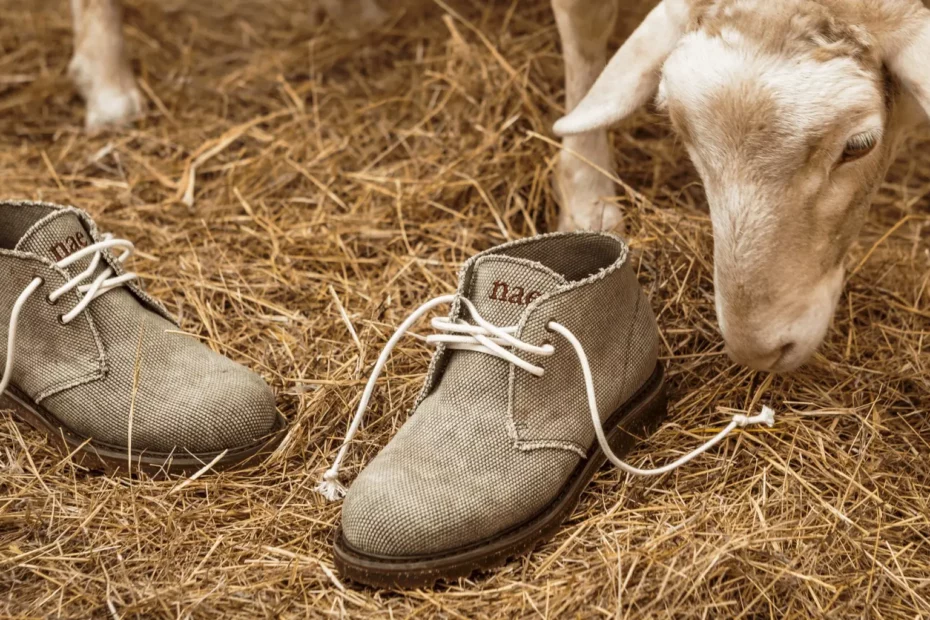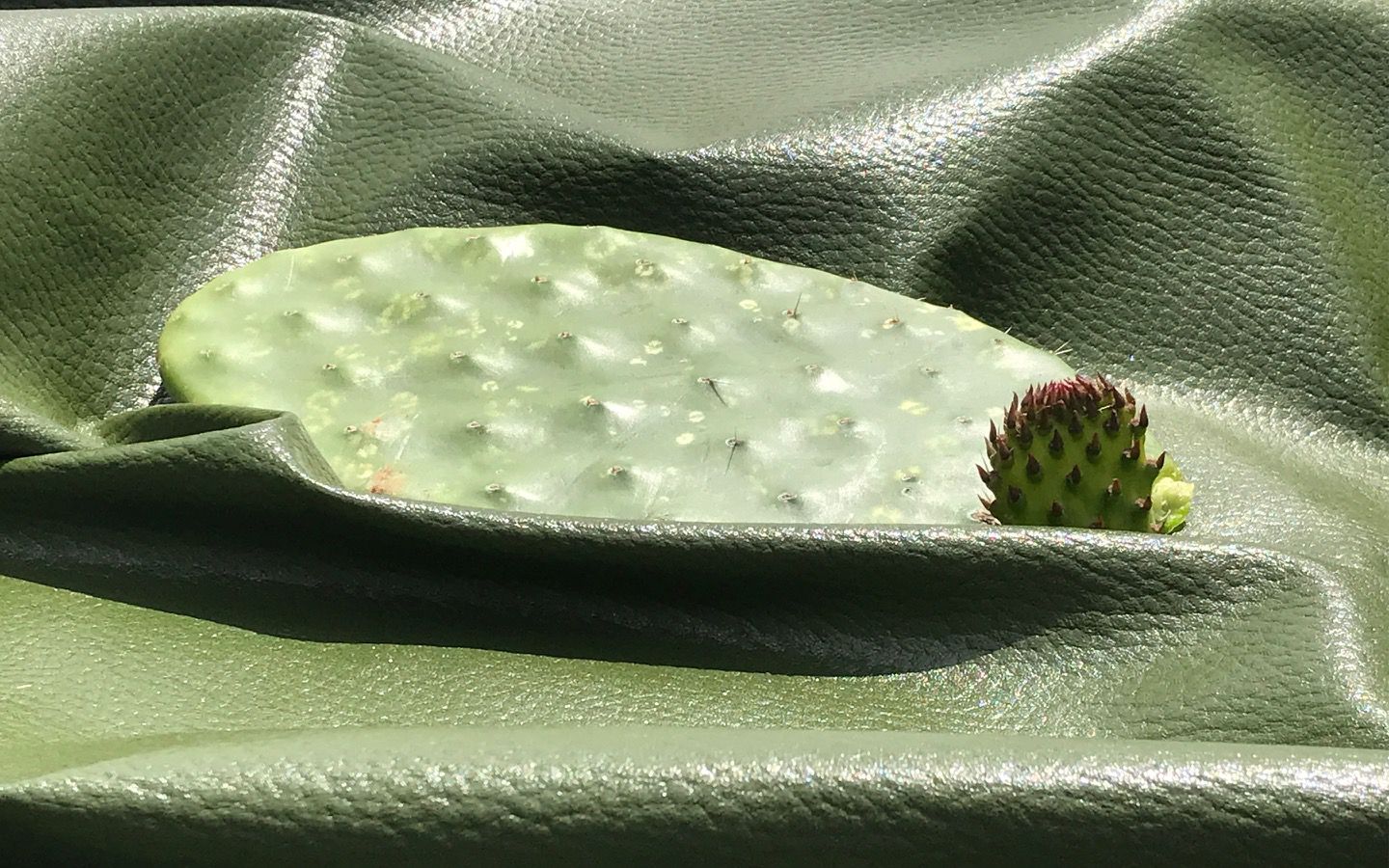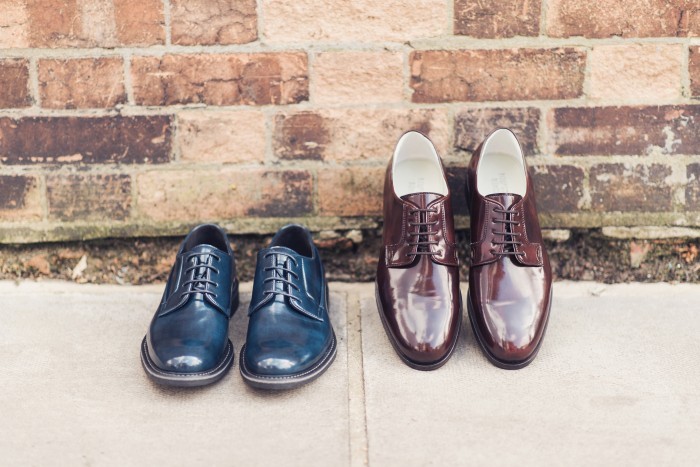Introduction
Vegan shoes might sound like somewhat of an oxymoron compared to traditional leather shoes, but this eco-friendly alternative is quickly taking over the market. Despite the traditional reputation of leather shoes, in the past few years, vegan shoe products have substantially grown in popularity. In general, the increased awareness of animal welfare and the desire to remain sustainable are the main reasons for this surge in the vegan shoe industry.
Vegan shoes are any footwear created using little to no animal hide or leather. In other words, manufacturers often make them with fabric, synthetic materials, or other plant-based materials as substitutes for leather. The shoe maintains strength, structure, and style without animal by-products. There is no lack of options in your fashionable vegan leather shoes anymore. Heeled boots to men’s dress shoes cater to all humane footwear preferences. This blog explores vegan shoes’ benefits and why we should consider joining the revolution.
Benefits of wearing vegan shoes
As more people become aware of the positive impact that our lifestyle choices can have on the environment, the popularity of vegan and eco-friendly products has really taken off. Vegan shoes are one such product that has the potential to make a real difference. With their sustainable materials, ethical production methods and animal-friendly designs, vegan shoes have many benefits. For a start, vegan shoes provide a humane option for footwear, as they are produced without harming any animal. Not only that, but they also substitute animal materials (such as leather) with modern materials like microfiber and fabric, which are free of chemicals that would otherwise have contaminated the animal.
Another great benefit of vegan shoes is that they are significantly more eco-friendly than conventional leather shoes. Not using animals in vegan shoes reduces the burden on our planet’s resources and lowers your carbon footprint. As a result, their production requires less water and energy, leading to decreased waste and air pollution. Finally, vegan shoes are highly comfortable and stylish, too! This means that you no longer have to choose between fashion and comfort – you can enjoy both at the same time! Vegan shoes are revolutionising the way we think about footwear, and with their combination of comfort, style and ethical production, it’s certainly a trend that is here to stay. Vegan shoes are a perfect choice if you’re looking for footwear with a conscience.
Embracing Vegan Shoes
Vegan and eco-friendly products are gaining popularity due to their positive environmental impact. Vegan shoes, made with sustainable materials and ethical methods, offer many benefits. Using modern materials like microfiber and fabric, these shoes provide a humane footwear option without harming animals. Vegan shoes are more eco-friendly than leather shoes, reducing the burden on resources and decreasing carbon footprints. Their production requires less water and energy, reducing waste and pollution. These comfortable and stylish shoes merge fashion and comfort seamlessly. Vegan shoes are changing footwear perceptions, and their comfort, style, and ethical production make them a lasting trend. For conscientious footwear, choose vegan shoes.
The growing popularity of vegan shoes
Veganism’s popularity extends to fashion, with growing demand for ethically produced, plant-based footwear. Vegan-friendly shoe brands have increased, offering stylish and ethical options. Vegan shoes avoid animal-derived materials, using eco-friendly, cost-effective synthetic materials like polyurethane or polyvinyl. They’re often more affordable than their non-vegan counterparts. Vegan shoes provide better breathability, comfort, and benefits for foot conditions. This trend supports animal welfare by reducing leather demand and animal exploitation. The vegan shoe revolution continues with more brands offering options and increasing consumer interest.
History of Vegan Shoes
The emergence of vegan leather
The emergence of vegan leather has quickly become a major player in the fashion industry, with more and more people looking to adopt a more ethical approach to fashion. But what exactly is vegan leather, and why is it so revolutionary? Vegan leather refers to modern synthetic materials and fabrics designed to mimic the look and feel of real leather without using any animal products. Manufacturers can create it from various materials, including polyurethane, polyester, microfiber, pineapple leaf fibres, and apple skin! These vegan leather materials provide a unique and ethical alternative to the traditional leather industry. They are revolutionary in the sense that they are fully vegan, meaning no animal products are used in their fabrication.
The production process is also very sustainable, as the materials used for producing vegan leather do not harm the environment in any way. The most apparent benefit of vegan leather is that it does not harm animals or the environment. This is particularly important as the leather industry has previously been criticised for using harmful chemicals and mistreating animals. Vegan leather has come a long way in recent years and offers consumers a range of high-quality, stylish and ethically sound footwear options. What’s more, many great brands offer beautiful vegan leather shoes at affordable prices. So there’s never been a better time to get your feet into a pair of vegan leather shoes and join the vegan footwear revolution!
The popularity of vegan leather in the fashion industry
Vegan leather’s popularity in fashion has grown due to its advantages over animal-derived leather. Designers like Stella McCartney and Gucci have embraced it. Vegan leather is lightweight, breathable, water-resistant, fast-drying, and easy to clean. It offers a luxurious look and feels, making it a perfect fur-free alternative. Its environmental impact is lower, as it is made from sustainable synthetic materials like microfibers. Cruelty-free and biodegradable, vegan leather gains popularity daily. As demand increases, more designers and retailers will adopt it as a lasting trend.
Looking for the best vegan clothing brands for men? Check out our post on Men’s Vegan Clothing for top fashion recommendations.
Time to Vegan
Different Types of Vegan Shoes
Sandals
Sandals are a summertime essential, and as a vegan, you’re sure to be on the lookout for sandals that don’t contain any animal products. Fortunately, a vast range of stylish and comfortable sandals is available in the ever-expanding vegan footwear market. Whether you’re a fan of classic espadrilles or strappy gladiator sandals, you have a vegan option. Most vegan sandals are made from synthetic or natural materials, such as microfibre, hemp, jute, or cork. Many vegan sandals have other environmentally-friendly features, such as soles from recycled materials or water-based glues. For a classic, timeless look, opt for a pair of espadrilles. Made from natural materials such as hemp or jute, espadrilles are a great option for vegan sandals; they look great with pretty much any outfit.
Straw or rope sandals are another great options. These typically have a straw or rope sole, with incredibly soft and breathable straps like microfibre or cork. These keep your feet cool in the summer and look great with any outfit. Gladiator sandals are also a great choice – they add an edgy, fashion-forward look to any outfit. Vegan gladiator sandals are available in a variety of materials, from faux leather and microfibre to hemp and jute. When shopping for vegan sandals, be sure to check the label for any animal-derived ingredients, and look for the vegan logo or the words ‘animal-free’ on the product’s packaging. So why not treat your feet to a pair of stylish vegan sandals this summer?
Sneakers
Vegan sneakers have become increasingly popular amongst the conscious consumer set. When the goal is to wear more sustainable and ethical athletics and sneakers, there are plenty of vegan sneakers to choose from. From comfortable low-tops and slip-ons, to stylish high-tops, these vegan sneakers offer fashion-forward design combined with animal-friendly materials. Most popular vegan sneakers are typically made from microfibers with a canvas upper or constructed from cotton canvas and other synthetic materials like polyester or recycled plastic bottles. They feature soft and breathable fabrics and durable, non-toxic rubber components.
All of the materials are entirely animal-free and ethically sourced. Whether for the gym, school or the great outdoors, most vegan sneakers today feature the latest Technology and comfort, from lightweight to position and cushioning, to waterproof and breathability. Manufacturers even create vegan sneakers specifically for biking, featuring a unique flexible sole that doesn’t crack like regular soles and offers stability and protection for your feet. Vegan sneakers come in many different styles and colours and can easily fit into any daily wardrobe. They’re the perfect way to stay stylish and socially responsible at the same time.
Dress shoes
Vegan dress shoes, a popular choice among eco-conscious consumers, offer various styles without compromising ethics or fashion. Synthetic leather, or “faux leather,” commonly replicates genuine leather’s look and feel. Innovations in synthetic leather production have led to high-quality, breathable, and water-resistant options.
Microfiber is another choice for vegan dress shoes, known for softness, durability, and water resistance. It can resemble suede or leather, providing a luxurious appearance. Manufacturers also use sustainable, plant-based materials like Piñatex (pineapple leaf fibres), MuSkin (mushroom-based leather), and apple leather, contributing to waste reduction and a lower environmental impact.
Vegan dress shoes come in styles such as Oxfords, Derbys, brogues, loafers, and monk straps. Brands are focusing on sustainable practices and ethical sourcing. As interest in veganism and ethical fashion grows, we can expect increased variety and innovation in the vegan shoe market. Tips for Maintaining Vegan Shoes
Tips for Maintaining Vegan Shoes
Cleaning
Proper cleaning is essential to extend the life of your vegan shoes and keep them looking fresh. First, remove any dirt or debris using a soft brush or a damp cloth. Mix a mild soap solution with water for synthetic leather shoes and use a soft cloth to clean the surface gently. Invest in a special suede brush or eraser for suede-like materials to remove stains and dirt without damaging the material. Always follow the manufacturer’s care instructions, and test cleaning methods on an inconspicuous area before applying them to the entire shoe.
Repairing
Vegan shoes, like any other footwear, can experience wear and tear over time. Address minor issues promptly to prevent them from worsening. Try using matching shoe polish or marker to conceal the damage for scuffed synthetic leather. If your shoes have removable insoles, replace them when they show signs of wear for added comfort and support. For more extensive repairs, such as fixing broken straps, separated soles, or damaged heels, consult a professional cobbler with experience in handling vegan materials.
Storage
Proper storage can help maintain your vegan shoes’ shape, colour, and longevity. Store them in a cool, dry place away from direct sunlight, which can cause fading or material damage. Use a shoe rack or individual shoeboxes to prevent crushing and deformation—stuff shoes with acid-free tissue paper or cedar shoe trees to help maintain their shape and absorb moisture. Regularly air out your shoes and rotate their usage to prevent the buildup of odour-causing bacteria. By implementing these storage tips, you can keep your vegan shoes in top condition for longer.
With these maintenance tips in mind, you can ensure your vegan shoes remain in excellent condition while continuing to impact the environment and animal welfare positively.



